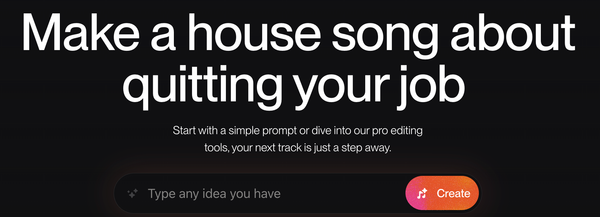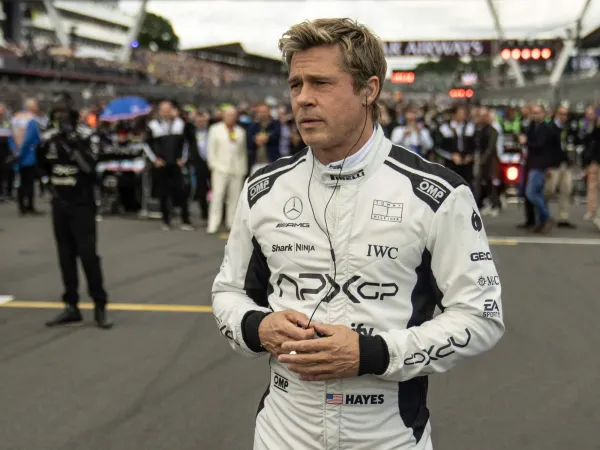Spotify Will Probably Be Your Doctor by 2030
With Big Tech rushing to "health-ize" consumer experiences, the healthcare pivot feels more like strategic inevitability.
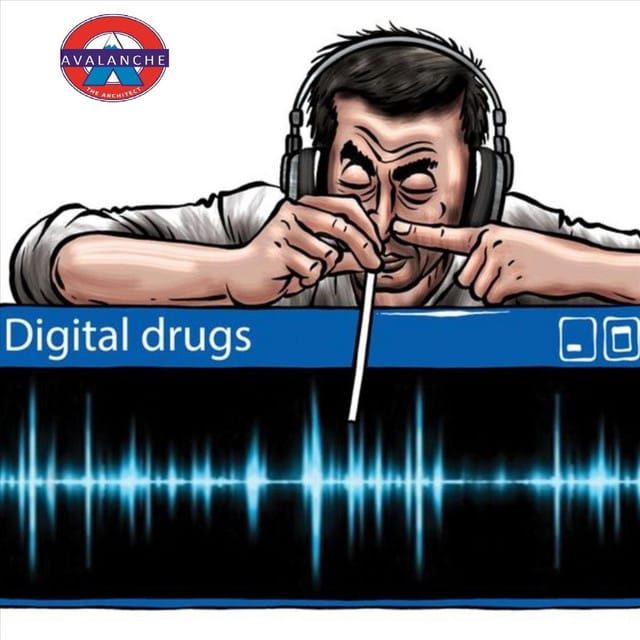
"Mr. Ek said Spotify would reach one billion listeners by 2030, and generate $100 billion in revenue annually with a 40% gross margin." ⓒWSJ
Ambitious, right? That's the kind of bold vision tech CEOs love flashing on investor slides: lots of users, lots of revenue, healthy margins. It's textbook Silicon Valley optimism. But Spotify's real path to $100 billion isn't just stacking listeners and revenue – it'll pivot to becoming a full-blown consumer healthcare platform by 2030. In fact, I'll bet my favorite playlist on this.

I know how that sounds. Spotify – the app where you blast Travis Scott to survive morning commutes, or squeeze every ounce of motivation from your fatigued thighs with Drake (my bad, I meant Kendrick) – offering health advice? It felt a bit left-field to me too, until a few things clicked.
A few weeks ago, stuck staring at my ceiling at 2am, I skeptically fired up Spotify's "Deep Sleep" playlist. It wasn't exactly melatonin-level effective, but those whispery, slow-motion vocals at 60 bpm actually knocked me out cold within three tracks. Monday mornings have shifted too. I've been waking up to its meditation guides at least once a week, and lately I'm borderline dependent on its "Focus" playlist that lets me power through the day. Without realizing it, Spotify had become essential for my sleep, stress, and productivity – all in a single day.
Practically my digital Adderall these days.
Look closely, and you'll see Spotify subtly embedding itself into everyday health rituals: meditation podcasts, yoga playlists, anxiety-reducing ambient soundscapes. It's happening in small doses now, but by 2030 these threads may very well be Spotify's headline strategy. Rather than just bragging listener numbers or revenue streams, it will spotlight how they're keeping those listeners (and the minds and bodies connected to them) healthier and happier.
That's my big bet: wellness, not the expansion of its current offerings, is what will turn those lofty targets into reality.
Big Goals, Bigger Pivot
Spotify's 2030 ambitions – one billion listeners, $100B in annual revenue – are huge. To put it in perspective, that's roughly a 6x jump in revenue from 2024 levels. You don't get 6x growth in a mature market by doing more of the same. Sure, they can keep scooping up podcasters or tweaking subscription prices, but at some point, pure audio entertainment is a saturated game. Every investor paying attention knows something bigger has to fuel that growth.

The clue lies in Big Tech's recent moves. When these players hit ceilings, they need a new territory, and increasingly they're turning to healthcare. Apple marketed its Watch as a health device first, tech product second. Amazon swallowed primary-care provider One Medical and opened its own pharmacy. Alphabet funnels billions into AI diagnostics and fitness trackers like Fitbit. For them, health isn't just a noble pursuit – it's one of the last trillion-dollar frontiers waiting to be cracked wide open.

So, Spotify targeting health is less of a risky gamble and more like the next logical leap if they're serious about that sixfold growth. There are only so many ways you can squeeze dollars from music subscriptions and advertising without expanding the pie. By contrast, the global wellness market – valued around $6.3T – is a pie just waiting for more consumer-focused tech solutions. Grabbing even a slice dwarfs what Spotify earns from streaming music.
This isn't just my theoretical musing. Spotify's Daniel Ek personally co-founded a preventive health startup Neko Health, specializing in AI-powered full-body scans. You don't need wild imagination to connect the dots. The guy who built the world's biggest audio platform is pouring his own resources into healthcare. Clearly, Ek senses a big opportunity here. And even if Neko and Spotify don't formally converge by 2030, his direct involvement makes Spotify's pivot more of a strategic inevitability.
The story of Spotify's origin. The actor's resemblance to Ek is almost unsettling.
From Beats to Heartbeats (sorry, had to)
One big reason Spotify’s health pivot makes sense: they're already halfway there. Millions casually use the app for self-care, whether we label it that way or not. Music as therapy isn't new; what's new is how effortlessly Spotify integrated it into everyday life. It knows your mood, your routine, maybe even your heart rate via wearables. That's a goldmine of health-adjacent insights.

Just look at the numbers: its listeners have created over 97 million workout and fitness playlists. That’s not Spotify flexing some vanity stat – users are explicitly curating the app for physical health. Add to that the thousands of playlists like "Stress Relief," "Meditation Music," and "Confidence Boost," and suddenly Spotify looks less like entertainment and more like an essential self-care companion.
The company isn't blind to this either. In 2020, they launched "Daily Wellness" – morning pep talks, evening meditations, personalized playlists mixed with motivational podcasts and soothing tunes. It's subtle, but signals an understanding that "hey, people want to use Spotify to feel good and healthy, not just entertained." They even built a Wellness Hub, promoting mental health and mindfulness audio content, partnering with organizations like UNICEF. These aren't moves of a company casually dabbling; they're quietly testing serious waters.
Even the way Spotify has expanded its content sets the stage for a health push. A few years ago it was all about music. Then came podcasts – where you go for stories, conversations, knowledge. Then came audiobooks, broadening into education and literature. Each expansion inches closer to self-improvement and wellness. Already, Spotify hosts top health-focused podcasts like "Huberman Lab" or Calm's guided meditations. The line between entertainment and wellness content is blurring quickly. If Spotify guides your yoga session, is that entertainment or healthcare? The answer is both, and it signals how naturally Spotify could straddle these worlds.

Then there's trust. My own reliance on the app for sleep, stress, and focus proves how deeply users trust Spotify to influence mental and physical states. That's a pretty profound relationship, one many healthcare apps would kill to have. When you open Headspace or another meditation app, you're explicitly saying "I need help." With Spotify, you're looking for a good playlist – but if that playlist consistently helps your well-being, it's effectively your healthcare app without explicitly naming it as such. The opportunity here is for Spotify to embrace that role more directly.
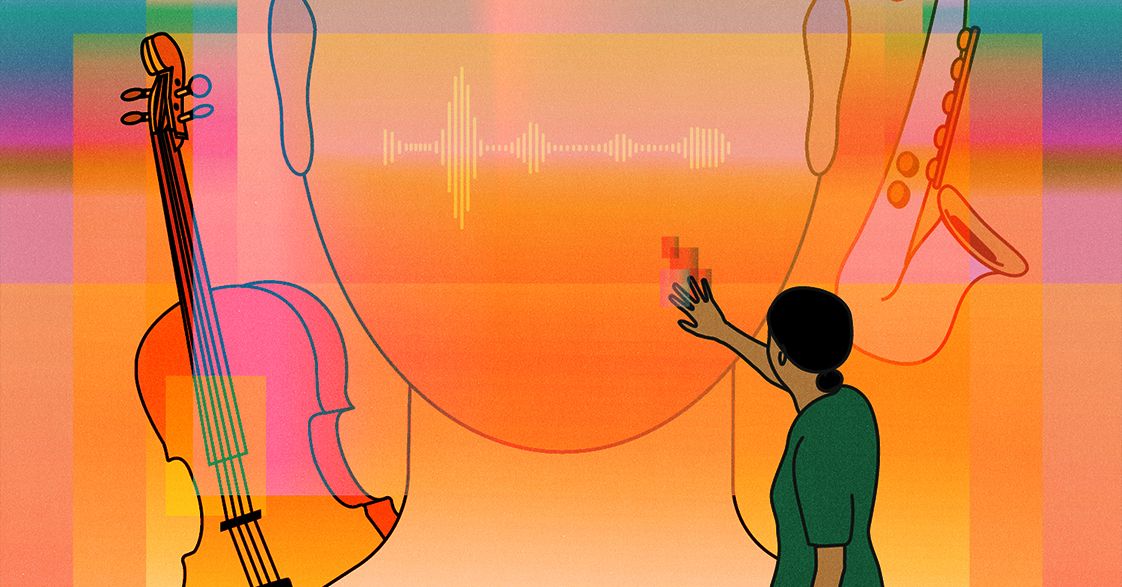
"In the past two years alone, more than 8,000 papers have been published on the topic in peer-reviewed journals."
The science is there too. Music measurably reduces cortisol levels, pain, anxiety, even depression symptoms. Hospitals have increasingly adopted music for its therapeutic benefits. (Look here, here, and here.) Spotify already dominates personalized audio. Who better is primed to merge that trust with real health outcomes?
The Health-ization of Consumer
And if you zoom out, you'll notice a broader shift at play: healthcare quietly weaving itself into our daily habits, a trend experts call the "health-ization of consumer." Rather than just making clinical care more accessible ("consumer-ization of health", with telehealth apps or insurance portals), the health-ization of consumer subtly injects wellness into things we're already hooked on. Spotify embodies this perfectly. You open the app looking for your favorite hype song or chill lo-fi beats, but end up calmer, less anxious, or simply better rested by the time you log off. It's wellness in disguise, positioning it at the heart of our daily self-care rituals without us even realizing.
Heard: Herd Mentality
Spotify diving headfirst into healthcare might still sound a bit wild, but tech history is filled with similar pivots. A decade ago, the idea of Amazon running pharmacies or Apple publishing medical studies seemed just as absurd, yet here we are. Big Tech quickly learned they have three health essentials: devices, data, daily engagement. Spotify already nails two (data and engagement). It hasn't launched its own Fitbit yet, but even for hardware, we can't rule out the possibility entirely.

And there's a bit of herd mentality in tech: once one proves consumers will trust them in a new domain, others rush to follow. Apple's health-tracking success pushed Google toward Fitbit, and Amazon toward Alexa medical reminders. Spotify might look smaller, but for daily attention, especially with younger generations, it's as much a daily habit as any Big Tech. That's powerful if you want to introduce a new service – say, health coaching or personalized wellness content – because you don't have to persuade people to adopt a new device or app. You just build on what they're already using every day.
Now, you might argue how health is a highly specialized, regulated field, and that Spotify isn't exactly Apple or Google with armies of scientists and engineers. Fair point, but the platform's unique strength is precisely its focused identity: it understands audio, and how audio integrates seamlessly into your daily life. If it leans into curating powerful wellness experiences through audio and selective medical partnerships, it could earn trust one playlist at a time. And the outsider status might even play to its advantage. Spotify isn't a stuffy medical firm awkwardly trying to become cool and consumer-friendly; it's already in our pocket, already beloved, and can partner for the medical bits as needed.
i take making the 0.05% of taylor’s listeners each year VERY seriously #spotifywrapped pic.twitter.com/OFOJyKNNxF
— cait (@TORTUREDP0ET13) December 4, 2024
As someone put it, Spotify Wrapped is basically the insufferable nadir of Gen Z narcissism. Still there's no denying it hits home with them.
Plus, our expectations for everyday tech are evolving rapidly. We now scoff if a smartwatch lacks heart rate monitoring or if an app skips "dark mode" to reduce our eye strain. Within a few years, turning to Spotify for wellness could feel as intuitive as opening it for music. In fact, if Spotify doesn't offer health perks by then, it might feel as outdated as Netflix mailing DVDs.
Streaming Your Health
Fast forward to 2030. Imagine your morning starting gently as Spotify’s Morning Check-In softly prompts you: "Hey, rough sleep last night?" (it already knows via your Oura ring or Apple Health.) Before you can groan, a two-minute meditation and energizing playlist ease you into your day. Got a nerve-wracking presentation at noon? Spotify knows your schedule and smoothly queues a short confidence-boosting session alongside your go-to hype track.
My Adderall #2
Later, you're at the gym. Spotify isn't just randomly shuffling tracks; it's your personal fitness DJ, carefully syncing songs to your target heart rate, pulled seamlessly from your smartwatch. Pushing for a PR on the treadmill? Spotify dynamically ramps up to an intense playlist curated by real trainers. And then, it transitions to slow beats guiding your stretches. It's not just background noise – it's practically a personal trainer whispering encouragement directly into your ear.
Spotify Health won't just be reactive; it'll proactively support your mental and physical health. Maybe your recent listening history is dominated by moody ballads at odd hours – Spotify gently nudges you: "Looks like you're going through a rough patch. Want to try a quick reset with some stress-relief coaching?" In moments, you're listening to a calming CBT session or talking to a certified counselor via live audio. This is where things get interesting: connecting users with health professionals like Huberman through the platform. Maybe not full-on telemedicine visits (though who knows), but coaching, therapy, and education from experts delivered as content. Spotify could become a wellness marketplace for health experts, just as it did for independent podcasters.

Features You'll (Actually) Use
- Personalized Wellness Playlists
What if your playlists adapted in real-time based on your biometrics? Your heart rate spikes after an intense meeting, and Spotify smoothly offers a playlist (scientifically proven) to lower your pulse. Feeling the 3pm slump? Spotify asks, "Want an energy lift to grind through?" It's like biofeedback meeting DJ-ing.
- Guided Health Programs
Imagine an interactive, month-long "Sleep Better" journey where Spotify gently guides you each evening: "Tonight, let's dim those lights and drift off to this soundscape." Or picture a personalized running program like C25K, where Spotify matches music beats perfectly to your pace, encouraging you at each milestone "Congrats, you just crushed that mile."

- Integration with Medical Devices
Perhaps Spotify partners with your health gadgets. Blood pressure a bit high today? It quietly queues a calming breathing exercise. Hit your step goal early? It celebrates you with your favorite upbeat jam and a cheerful message.

- Community and Support
Imagine joining a "Mindfulness Challenge" with your close friends – swapping meditation favorites, encouraging each other's streaks, or playfully competing to see who stays zen longest. Spotify has dipped toes in social features for music already. It's not rocket science to extend that to wellness.

- Expert Content and Partnerships
Spotify shouldn't (and likely won't) pose as a medical expert itself. Instead, imagine institutions like Mayo Clinic or Calm providing premium content within the app. If Spotify's smart, it will let serious healthcare players plug into its platform, bringing credibility and expertise, while it brings the user base and UX. Soon your doctor might say, "I'm prescribing 30 minutes daily on Spotify Health to manage your anxiety. We'll discuss your progress next visit."

Crucially, many of these features come under a "Spotify Health+" subscription. Employers and insurers might cover subscriptions as part of wellness programs if it's shown to improve tangible health outcomes. Affiliate partnerships could easily be another money move – Spotify nudges you toward protein shakes or meditation retreats, you get a discount, Spotify gets a cut. Win-win.
Suddenly those 2030 revenue goals don't seem too crazy. If Spotify captures value not just as entertainment, but as health, people and institutions might pay in ways they never would for just ad-free music. A meditation app subscription today costs around $70/year. A gym membership is $700/year. A therapy session is $100 a pop. How much of that value could Spotify tap into if it becomes a trusted health platform? With scale on its side, potentially massive.
Healthy Skepticism
Of course, there are reasons why Spotify's pivot into healthcare isn't guaranteed smooth sailing. First, credibility matters. Spotify excels at music recommendations and content licensing, but health outcomes and medical insights? That's uncharted territory. Historically, tech giants like Google and Microsoft have already shown us what happens when companies without deep healthcare roots venture too far into the medical field, diluting their brands and losing consumer trust. Even Fitbit's recent struggles highlight how tricky health tech can get.
Then there's regulation. Entering the health data space isn't just challenging; it's a regulatory minefield, including privacy laws like HIPAA. One wrong step and you end up with a headline like "Spotify Knows When You're Depressed". Navigating these rules means every new health feature requires careful legal scrutiny, potentially slowing momentum.
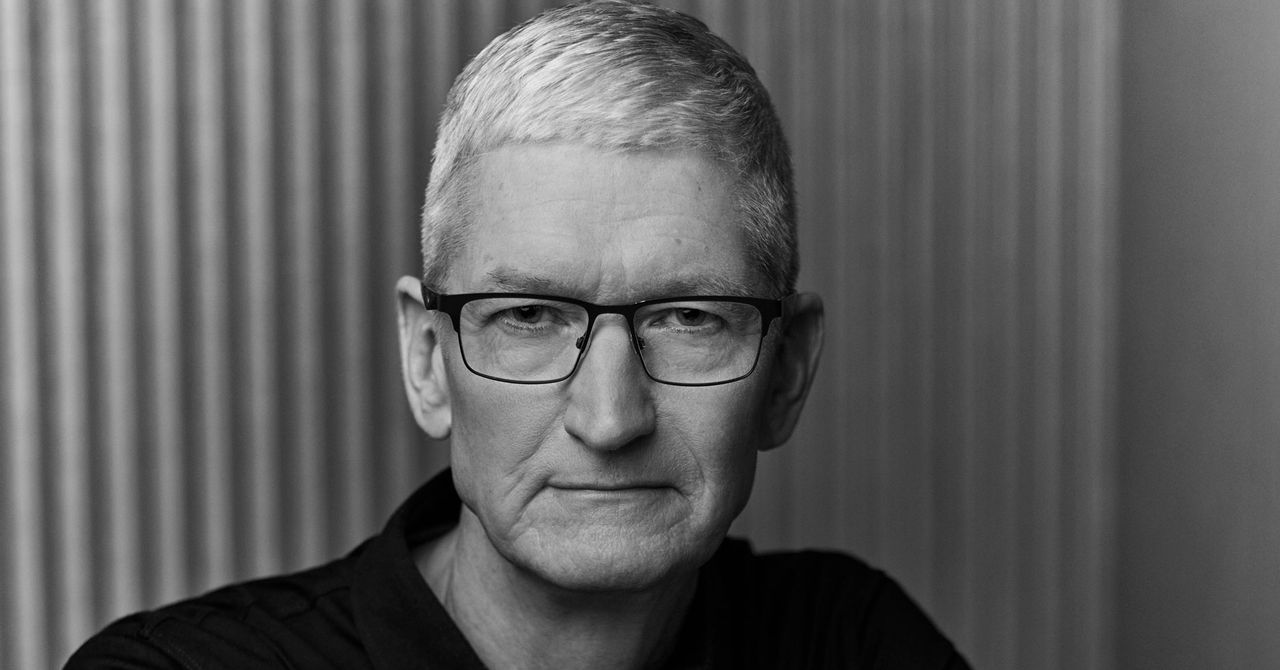
He's consistently emphasized Apple's commitment to "Health" (even envisioning it as its most significant contribution to humanity).
Competition is another hurdle. Apple could integrate mental health and fitness so deeply into iOS by 2030 that Spotify's offering might feel redundant. To stand out, Spotify would need to leverage its unique strengths (music and personalization) to create a distinctly engaging wellness experience.
Finally, there's Spotify's internal culture. Shifting from entertainment tech to healthcare isn't trivial. Spotify will need doctors, scientists, and specialized partnership managers who speak a different language from audio engineers and playlist curators. Blending these cultures isn't easy. Without genuine medical insight, Spotify's wellness offerings could quickly turn into gimmicky features people simply ignore.

But despite these hurdles, here's why I think the pivot will happen anyway: the consumer demand and competitive pressure will force it. Users increasingly favor apps that blend seamlessly into their daily lives, offering entertainment and wellness in one place. Spotify, already skilled at absorbing all things audio (music, podcasts, audiobooks), could naturally add wellness audio to its playlist. By starting first with low-risk partnerships and building trust through incremental additions, Spotify might quietly embed itself into our daily health routines long before it officially feels "medical."
Press Play, Twice Daily
In the end, this isn't about Spotify dumping its roots in music to become your digital doctor. It's about expanding what an "audio platform" truly means in our lives. Today, it means entertainment and distraction. By 2030, it could represent enrichment and well-being, with Spotify guiding you not just to your next favorite song, but to a healthier mind and body.
Even if this bold vision only partially materializes, the seeds are already visible today. Every time you queue up a sleep soundtrack or a workout mix on Spotify, you're essentially voting for the company to lean further in that direction. And they will, because ultimately Spotify's advantage is how intimately it meshes with daily life.
Soon, your go-to playlist could become as essential as your morning vitamins. And if anyone can turn soundtracks into prescriptions, my money's on Spotify.




